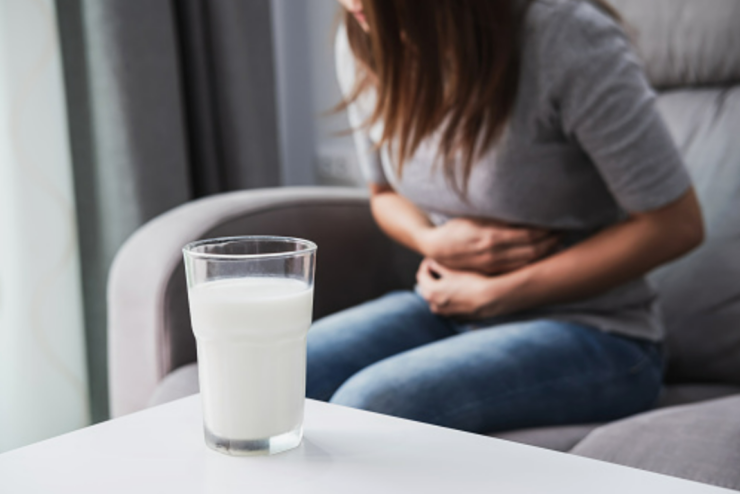People often make mistakes when comparing food intolerance and food allergies. The symptoms people might experience are very similar, but treatment is very different in any way. That’s why people should always check with their doctor so they can properly diagnose what kind of condition they are facing. There are some very good reasons why people shouldn’t ignore the signs of food sensitivity, and what will happen if they do that.
1. You will feel tired and fatigued

When you constantly eat goods that you are sensitive to, with time you will realize that they are impacting the way that you function on a daily basis. You will start feeling tired, exhausted, you will need more and more sleep, and you will also experience fatigue.
Note that your body is doing everything it can to fight the sensitivity, and along with the other symptoms that you will experience, you will need to rest a lot to be able to fight all of this. If you do this once in a while, and if you want to just treat yourself with the “forbidden” dishes, most likely it is going to be okay, and you will not have long-term consequences.
However, if you do it on a daily or a weekly basis, with time you will see that you cannot do your normal tasks like you used to. You will not have the needed strength to do even simple chores like grocery shopping. In moments like these, many people start fearing that there is something seriously wrong with them, and they will subject themselves to complex tests and analysis, but in most cases, you will see the only reason for you feeling excessively tired is because you keep eating things that you are not supposed to.
2. Your system cannot digest the contents properly
If you are intolerant to certain kinds of food, then you might feel bloated for a few hours after a meal. This happens because your digestive system lacks that exact enzyme that helps to digest the meal. For example, if you are lactose intolerant, there are pretty good chances that you’ll be bloated for a couple of hours, and you won’t be able to drink even a single glass of water. And those couple of hours can feel like an eternity. Being food-sensitive doesn’t mean that your system cannot digest food, it means that the food is digesting pretty slowly and it’s incredibly hard.
That’s why you should stay away from meals that you are intolerant to. Note that sometimes the warning signs of sensitivity and allergy can be really similar, so that is why IntoleranceLab recommends you take a food intolerance test before you make any final decisions or start any treatments before getting the right diagnosis.
3. Headaches and migraines are also some of the signs

Being food-sensitive doesn’t always cause bloating. Sometimes headaches and migraines can be a sign of the incapability of your digestive system to process the food correctly. These are very common symptoms, and people, sometimes even doctors forget don’t pay too much attention to them.
So, when if you are suffering from headaches and migraines, don’t forget that food intolerance might be a key factor in what causes them. It’s also important to attend to natural treatments when it comes to headaches and migraines. CBDClinicals has a list of the best cbd oils formulated for digestive issues. Be sure to check it out to know more. Instead of just taking painkillers and making your already tired body process more chemicals, you should first check out the cause, and if possible take treatment that can make a huge difference.
4. Stomach pain and diarrhea
Stomach pain and diarrhea are also some very common symptoms in diagnosing food intolerance. For example, if you eat a product (milk, meat, cheese, and kind of green salad), and after that, you feel an incredible pain in your stomach, chances are you are sensitive to the meal you ate. Also, besides bloating stomach pain, you might experience severe diarrhea after eating any kind of goods we mentioned above. All of these things can lead to food sensitivity, and that’s why is very important to check with your doctor, so it can determine what causes your discomfort. Food intolerance is not dangerous for your life, and with proper treatment, can be treated.
Even though there is still no cure for this condition, there are things that you can do to ease the symptoms, and your doctor may even prescribe medication that will help you with long-term effects, or things that you may be feeling right now. Note that as long as you collaborate with your GP and you are honest with them, you can easily keep this condition under control.
5. Anxiety and depression

Finally, you should know that all of these things will lead to feelings of anxiety and depression. When people are in constant pain, and when they are not exactly sure what is causing them, they will start feeling restless and helpless. Feelings of extreme irritability, nervousness, as well as aggression, are also common, and these things will affect your family and social life.
You may even start developing fears and phobias, and you may start feeling like everything you ingest is going to harm you. This creates an unhealthy relationship with food. That can lead to malnourishment. No matter the age you are, and no matter when the signs of sensitivity start showing up, this will continue happening for as long as you choose to eat goods that are going to harm your body.
Some people have even stated that continuing eating the things they are not supposed to and ignoring their food intolerance led them to start having panic attacks every time they had to sit down for a meal, even when it came to things that are completely safe for them. So, as you can see, if you continue with this habit, you will not only cause damage to your physical body, but you will also worsen your mental health.
Overall, if you ignore the common signs and symptoms, you will be in a lot of pain. You will be in discomfort for hours and even days after exposing your body to these components. In time, you may even cause damage to the small intestine, and this will lead to it not being able to properly process and absorb the vitamins and minerals that you get by eating proper things. Make sure to get checked and talk to your GP about the right course of treatment.

